

Our Approach | Our Impact | Buy Women's Coffees| Our Partners
.jpg?width=6893&name=2019_06_LetsTalkCoffee-10188%20(1).jpg)
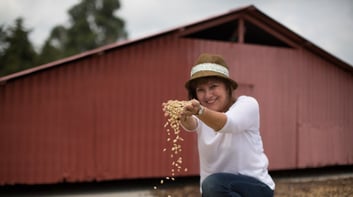
Sourcing: For women coffee producers, Relationship Coffee means we are not only committed to building strong relationships between roasters and producers, but to also pay active attention to the unique and substantial challenges women face related to building sourcing relationships, identify opportunities for continuous improvement, and work collaboratively to address them.

Investment: Gender equity will not be achieved by sourcing alone. We invest in removing barriers to education and market access for women. Gender equity is one of the fundamental pillars of our MVP program, and a priority outcome of many of our projects at origin.
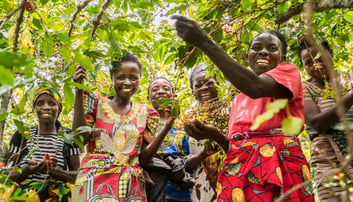
Collaboration: To facilitate systemic action with expert guidance, we turn to producers, cooperatives, top academics, innovative philanthropists, and industry leading organizations to identify opportunities to drive change beyond what occurs through our sourcing relationships, projects, and programs.
Our story of sourcing women's coffee began in 2003 when we partnered with the Las Hermanas women's growing collective in Nicaragua. Leading roasters like Peet's Coffee and Cafe Moto became long-term buyers of this high-quality coffee—which we still source to this day. In many ways, the Las Hermanas brand helped put women growers on the map in the specialty coffee industry, highlighting the possibilities of strong, dedicated women farmers to thrive in the marketplace
With the success of Las Hermanas, we began to seek out and develop relationships with women growers from around the globe, and are fortunate to have developed particularly strong relationships with women farmers in Rwanda, Nicaragua, Guatemala, Honduras and Colombia that continue to grow.

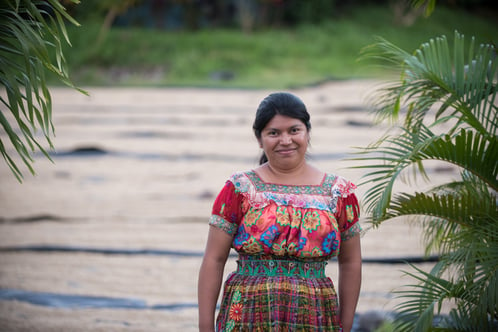
The Federacion Comercializadora de Cafe Especial de Guatemala, headquartered in Quetzaltenango, Guatemala, is a non-profit organization founded in 2006 to support small coffee producers working to overcome challenges to market access and price risk management. Currently FECCEG has 1,500 members (350 of which are women) from 15 producer organizations, associations and cooperatives. All are smallholder farmers dedicated to the organic production of specialty coffees, honey, panela, and cocoa.
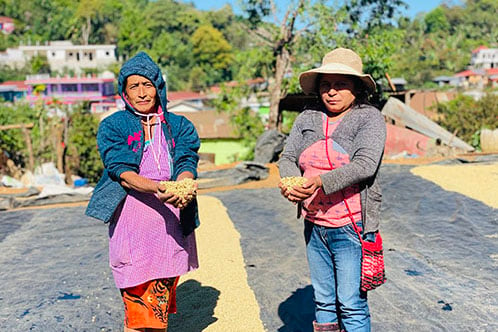
ACODIHUE, located in Huehuetenango, was founded in 1996. 80% of their coffee comes from indigenous women producers in the mountainous territory of Cuchumatan. Many of these women are widows or have husbands who migrated to the United States. In Guatemala, it's common for women to stay behind to take care of the land and their children. Their efforts have also focused on supporting children and empowering youth and women. The coffee from this lot was produced by a group of 139 women who are part of the AWAL NAN Women's Network which supports the economic and personal development of their members.
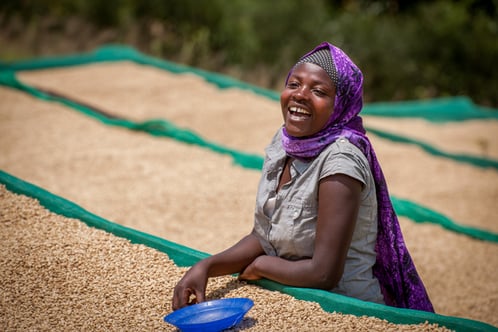
Abakundakawa cooperative farmers hand-pick ripe cherries on the volcanic slopes of Rwanda's mountainous Gakenke district. The coop has grown rapidly, adding a second washing station and expanding its membership from 180 to nearly 2,000 coffee growers since its founding in 2004. They have two prominent women's associations, Duhingekawa and Abanyameraka, demonstrating the co-op's focus on improving the livelihoods of women in their community. These women's associations have established a tailoring center with 15 sewing machines where senior members train younger women, creating a means for them to generate income outside of coffee. These efforts build economic and social resiliency for the whole community, as the women have displayed the tendency to consistently invest their earnings in educating children and supporting those in need.
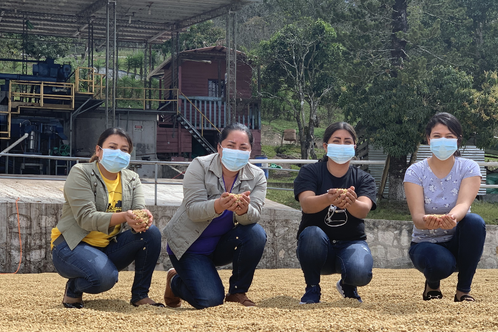
This lot comes from the farm of Karen Carillo, one of the founders of Pacayal Coffee. At her farm, Los Alpes, she harvests only the ripest cherries at the peak of maturation and ideal sugar content. For this honey processed coffee, she left the cherries to rest for 12 hours after harvesting, and then depulped them. Pacayal Coffee was born out of the resilience of Honduran farmers who refused to give up on coffee production in the face of the Roya outbreak of 2013. In 2014, Edgar and Karen Carillo founded Pacayal Coffee, which has since grown to 134 members, 54 of whom are women. Pacayal Coffee invests in several initiatives for producers, including best agricultural practices training to prevent Roya, economic empowerment programs for women, sustainable production practices training, and quality research to develop award-winning coffees and outstanding micro-lots.
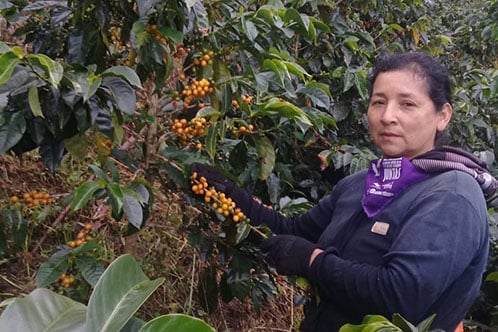
Asociacion de Productores Agropecuarios de Cafe Especial de Planadas (ASOPEP) was founded in 2013. They are a leader in the region despite being a relatively young organization. ASOPEP has more members than any other association in Tolima, and is the only coop with a completely vertically integrated infrastructure to control all aspects of processing, quality control, transportation and commercialization. The ASOPEP women's group is made up of 20 women who together farm 91 hectares of land for an annual production of 165 tons of coffee. Some of the women are part of the ASOPEP Women's Committee, which seeks to facilitate training in financial education, gastronomy and baking, and other craftwork.
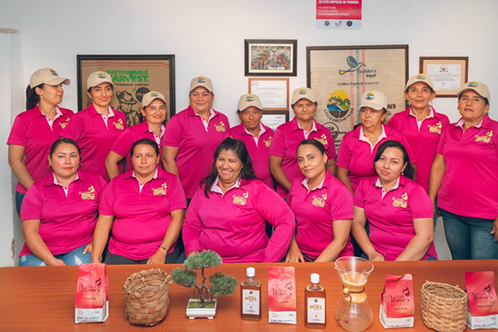
The Cooperativa de Caficultores y Agricultores de la Sierra Nevada de Santa Marta was founded in 2007, and today, is made of 63 partners, 26 of which are women. It is Fairtrade and Organic certified. The women's program is one of Cooagronevada's flagship initiatives and sales go directly to the incomes of the coop's women producers. Over the next few years, the coop plans to increase their investment in women producers to encourage more women to take on leadership roles. For this special lot, women carried out the harvest during the light of the full moon, taking care to reserve on the ripest cherries for this selection. The women specifically left just a little bit of mucilage clinging to the seeds, resulting in a profile similar to a honey process, but retaining full clarity and brightness in the cup. Look for big, tropical fruit notes of melon and hibiscus, citrus notes of mandarin, and sweet dried fruit notes of golden raisin.
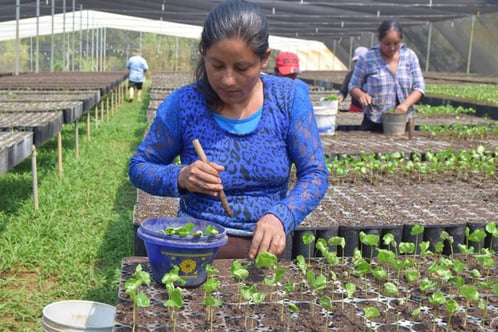
The cooperative Campesinos Ecologicos de la Sierra Madre de Chiapas was founded in 1994. CESMACH's long-term success is rooted in their guiding principles which aim to strike a balance between developing social programs and building a competitive business. CESMACH farmers live in the buffer zone of the El Triunfo biosphere where organic coffee farming is one of the few sanctioned activities in the delicate cloud forest habitat. More than 60% of the organization's members are certified and premiums from organic coffee sales support a community savings bank that facilitates member access to financing. Reserva El Triunfo- Cafe De Mujer is formed by 18 coffee women producers from Angel Albino Corzo, Montecristo de Gro., Capitan Luis A. Vidal, La Concordia and Siltepec, all located in Chiapas. The coffee is grown between 1,200 and 1,700 masl and is comprised of Typica and Bourbon.

Since 2013 the women of Nyampinga have received training in agronomy, market access, and quality control from Sustainable Growers. The result of the farmer's hard work and enhanced knowledge of coffee production has been a resounding improvement in cup quality. Nyampinga coffees are among finest available in all of Rwanda.
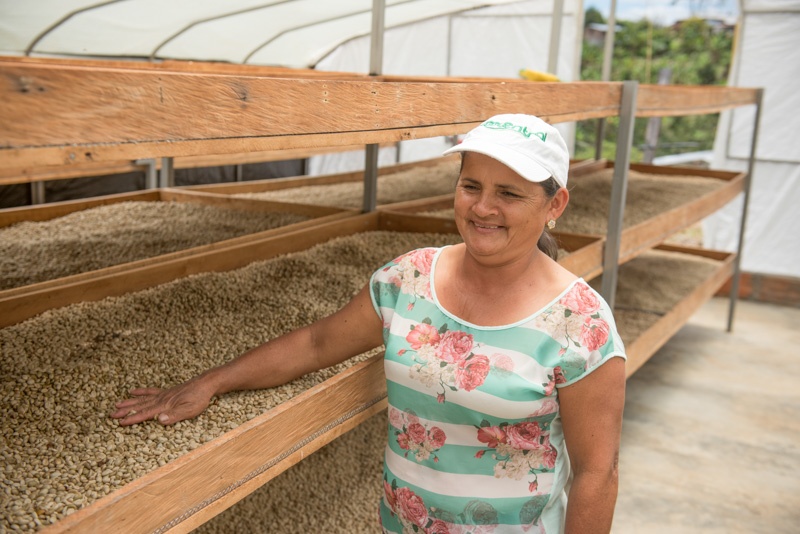
Coocentral’s Mujeres Cafeteras (Women’s Coffee) program started from an initiative to teach and empower 300 women coffee growers in the municipalities of Garzón, Pital, and El Agrado. Through Best Agricultural Practices training, the women learn technical skills in coffee harvesting, fermentation, and drying that they use to develop a differentiated cup profile with added value.

COMUCAP is an organization of women growers who formed their own growing collective after suffering from domestic violence and economic insecurity due to gender
Fill out the form to forward book this coffee

Like many cooperatives, there was a time when Soppexcca struggled with its financial management. However, beginning in the early 2000s, a charismatic and inspiring leader named Fatima Ismael led Soppexcca from a state of debt and low member trust to one of the most successful cooperatives in Nicaragua with solid businesses practices, extremely transparent operations, and progressive initiatives to improve gender equality within the co-op.
Fill out the form to forward book this coffee
2303 W Commodore Way , Suite 204
Seattle, WA 98199
503-235-1119